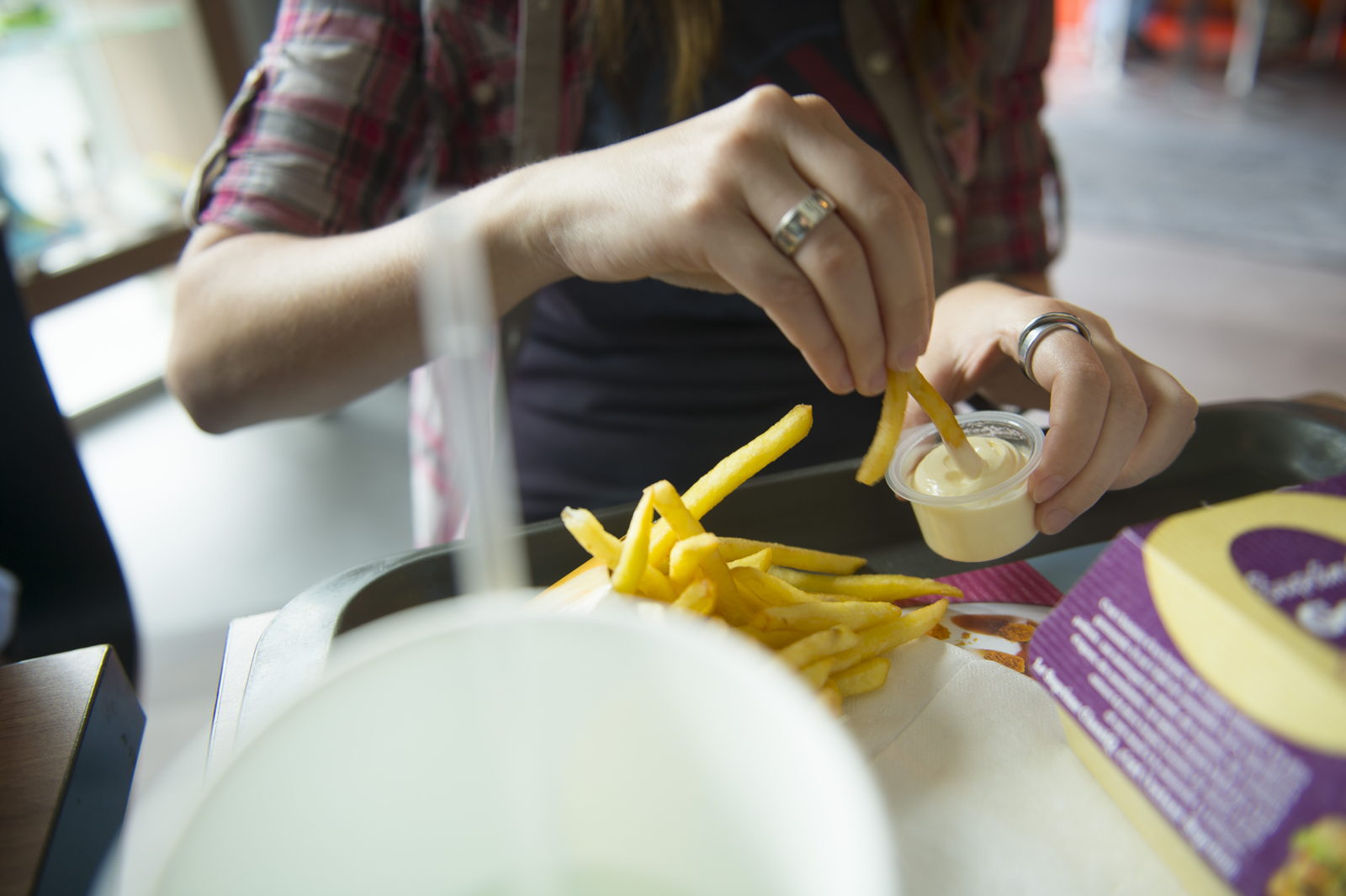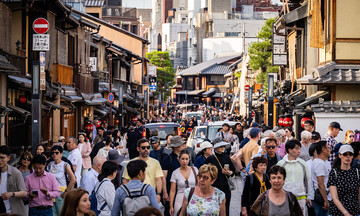The French take immense pride in their culinary heritage, viewing food as an integral part of their long-standing culture. French gastronomy has even been recognized by UNESCO as an intangible cultural heritage. Unlike the often hurried meals in other cultures, the French savor three meals a day at set times, each potentially lasting for hours. Mealtimes are seen as opportunities for social bonding, where food equates to pleasure, rather than simply fuel. This reverence for food, especially traditional dishes, translates into specific culinary practices, including strict guidelines for sauces and condiments.
 |
Many people enjoy French fries with mayonnaise. Photo: Jonas Hamers |
Many people enjoy French fries with mayonnaise. Photo: Jonas Hamers
In numerous French restaurants, especially those serving traditional or haute cuisine, requesting ketchup is often seen as an insult to the chef and a detriment to the carefully crafted dishes. The strong flavor of ketchup can overpower the subtle nuances of the main course, something French chefs strive to avoid. French cuisine emphasizes the natural flavors of ingredients, particularly in meat-based dishes like beef, chicken, or duck. Using ketchup is akin to requesting ingredient alterations to a dish with a fixed recipe.
Many French people and restaurants object to ketchup due to these deeply ingrained cultural norms. "My daughter once asked for ketchup with a traditional French duck leg dish. It's a meticulously prepared dish, so the idea of adding ketchup was immediately rejected," a Parisian shared on the online forum Quora.
The specific reaction to a ketchup request depends on the restaurant and its staff. In upscale establishments, staff might maintain a polite demeanor while subtly expressing disapproval or surprise. However, more casual eateries or tourist-friendly spots might be more accommodating.
Ben Lawton, a veteran of over 10 years in French restaurants, explains that he and his colleagues often have various responses to customer requests for ketchup. As servers, their duty is to satisfy customers, but not at the expense of the food's quality.
"We might politely bring a very small portion of ketchup. Or, we might subtly inform the guest that the restaurant doesn't offer ketchup, suggesting some of our signature sauces instead," Lawton said.
However, there's an exception to the ketchup rule in France: French fries. Even then, most restaurants carefully prepare their fries and serve them with traditional sauces like mayonnaise or bearnaise, or simply with a touch of salt to enhance the natural potato flavor.
 |
Ketchup is not allowed in French schools. Photo: Zee |
Ketchup is not allowed in French schools. Photo: Zee
In 2011, the French government banned ketchup in school cafeterias, except when served with French fries, to promote healthier eating habits. The rationale was that ketchup, high in sugar and salt, is detrimental to children's health.
Regarding the school ketchup ban, Christophe Hebert, president of the French Restaurant Association, stated, "It's essential to familiarize children with traditional French ingredients and flavors so they can pass them on to future generations. Children nowadays tend to use ketchup to mask the taste of the food they're eating."
While traditional French cuisine generally avoids ketchup, renowned French chef Jacques Pepin has praised its versatility as a base for sauces, enriching their flavor, and adding a spicy kick with ingredients like sriracha or tabasco to balance the sweetness. Recently, he suggested using homemade or high-quality ketchup sparingly and recognized its potential to enhance, rather than overpower, dishes.
Tam Anh (Tasting Table)












